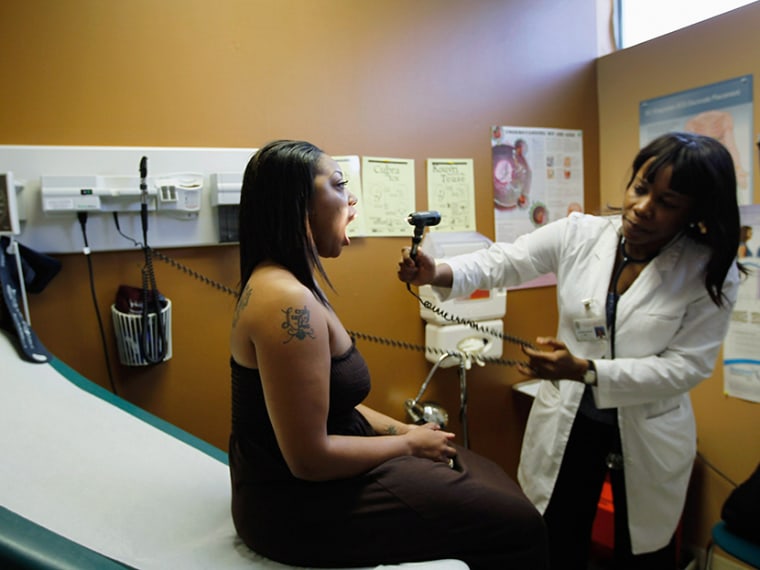In just over two months, health insurance exchanges will be available nationwide.
The exchanges will serve as a marketplace for individuals to purchase healthcare from private providers who will compete to cover them. Though the Affordable Care Act (ACA) is a federal law, each state has chosen its own unique path to offering exchanges.
“If you’ve seen one state, you’ve seen one state,” Anne Gauthier of the National Academy for State Health Policy said explaining the variation among states’ approaches to ACA implementation.
Gauthier spoke on a PoliticoPro panel in Washington, D.C., on Thursday focused on state based implementation of Obamacare.
Open enrollment at the exchanges begins Oct. 1 and coverage will start as early as Jan. 1, 2014. But experts caution that those dates are just markers, and the process of expanding coverage to millions of Americans will take years.
Mark McClellan, former administrator of the Centers for Medicare and Medicaid Services, noted that the ACA’s implementation is not likely to be smooth or complete initially.
“There are going to be a lot of people who remain uninsured after the first open enrollment period, both by their own choice and because they may not have options available to them,” McClellen said. “This is going to be a several-year implementation process with more opportunities for debating whether this is the right way to go and probably some more needs for modification in the program along the way,” he added.
California and Texas provide two very different examples of how states are preparing for the pending changes to take effect.
California has embraced Obamacare, and its state-based insurance marketplace, Covered California, is engaged in a huge marketing campaign to educate and encourage people about enrollment.
Marian Mulkey, who works to support the implementation of health reform through the California HealthCare Foundation, explained at Thursday's panel that California’s campaign to educate and inform its citizens about access to healthcare services will be critical to their state-based system. She also acknowledged that the effectiveness of their big push can only be judged after enrollment begins.
“The question will be how effective is it at targeting to people who are eligible and how receptive will the people to the messages that are presented to them,” Mulkey said.
In contrast, Texas has been emblematic of the opposition to ACA and Republican Gov. Rick Perry said he had "no intention" of implementing a state health insurance exchange.
Texas is one of 27 states that have refused to set up exchanges instead defaulting the responsibility to the federal government.
Texas Republican Rep. Michael Burgess, vice chairman of the House Energy and Commerce Subcommittee on Health, explained that though the law is unpopular in his state, there hasn’t been much public discussion recently because of their decision to default to the federal system.
“Back home you’re not seeing a lot of activity because Texas has said we’re not doing the exchange. We’ll let the federal government set that up and take that responsibility,” said Burgess.
Burgess, a physician, also complained about the lack of information Texas has received from the federal government.
“The information coming out of the Administration has been so sparse,” he added. “There is still a lot of anxiety – a lot of question marks on October first. Can this thing actually work?”
With insurance exchanges set to open this fall, there is a lot of speculation about which states have chosen the right approach. But, as Gauthier noted at Thursday’s panel, we will all have to wait and see – and hopefully learn from each other’s lessons.
“There is unlikely, in this vast country, to be one model that works perfectly,” said Gauthier. “What’s important is that we learn the lessons of what’s working and what doesn’t work and spread them quickly so that those that come behind can adopt some of those practices.”
